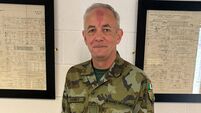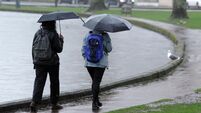Refugees 'struggling to access basic services' in emergency accommodation, says council

The Irish Refugee Council (IRC) has said asylum seekers are struggling to access basic services such as healthcare, when in the State system.
As mainstream Direct Provision centres reach peak capacity, and asylum seekers are being left in other "ad hoc" emergency accommodation, they are unable to access things such as schooling for their children and weekly allowances.













